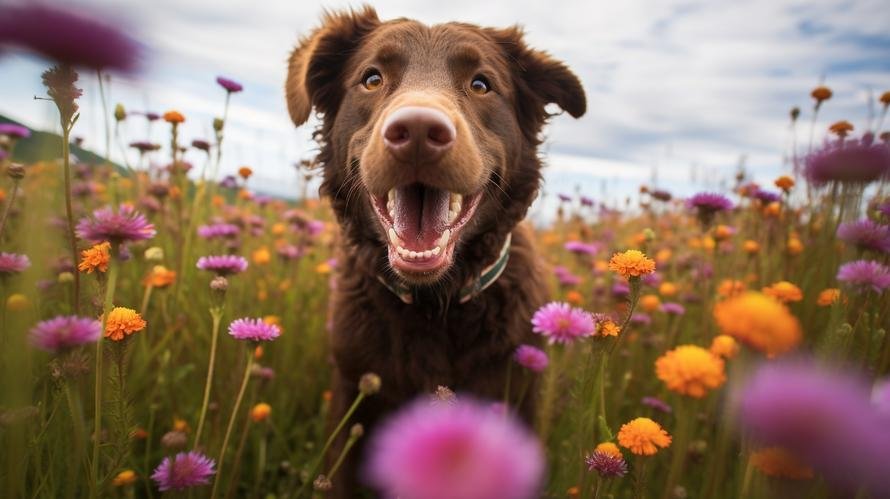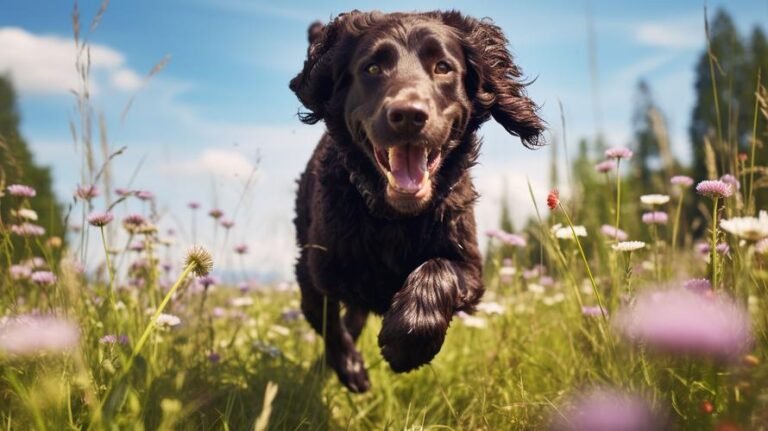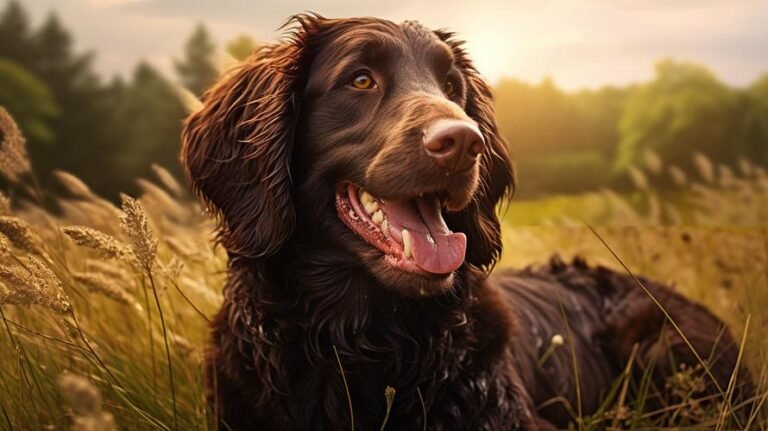“Cowabunga Dude,” echoes through your living room as you watch your favorite childhood cartoon, Teenage Mutant Ninja Turtles. But there’s another playful soul in the room not so engrossed in the anthropomorphic warriors. This soul is your first-class ‘fetch-machine’, the ever-endearing Curly-Coated Retriever. As your eyes dart between Michelangelo’s antics on screen and your pet’s own playful tumbles, you prick your ears up to hear some talk about grain-free diets for dogs. That’s an interesting thought you suddenly have. “Should my Curly-Coated Retriever eat grain-free?”
Grain-free diets have grown popular in the pet food industry over recent years. Many dog owners have switched to grain-free diets for their pets, believing it will improve their furry friend’s health. It’s a belief stemmed from the theory that domestic dogs, like their wolf ancestors, are primarily meat eaters and should consume minimal carbohydrates. However, just as you wouldn’t survive healthily on Ninja Turtle’s all pizza diet, the notion of grain-free diets for dogs needs to be digested critically.
Although dogs share DNA with wolves, their dietary needs have evolved significantly through centuries of domestication. Unlike their wild canines’ ancestors who feast mostly on prey, our friendly domestic dogs thrive on a diet that includes a balance of proteins, carbohydrates, and fats. This means that perfectly healthy Curly-Coated Retrievers don’t inherently require grain-free food, contrary to the propagated belief.
However, grains aren’t entirely inconsequential. They serve as an excellent source of energy, providing dogs with essential nutrients such as fiber, linoleic acid, and certain vitamins. Whole grains such as rice, oats, barley, and quinoa add variety and vitality to your furry friend’s plate. Saying ‘no’ to grains could deny your Curly-Coated Retriever of these essential nutrients, which can affect their health over time.
Here’s another twist in the tail—grain allergies. Although grain allergies in dogs are rare, they do occur. If your Curly-Coated Retriever exhibits symptoms such as skin problems, excessive itching, hair loss, or digestion issues after eating grains, consult your vet immediately. After proper diagnosis and if necessary, you might need to consider a grain-free diet for your pet.
However, grain-free doesn’t necessarily mean low carbs or healthier. Many grain-free dog foods use ingredients such as potatoes, peas, and chickpeas, which have potential to increase the carbohydrate content in the diet, causing obesity, diabetes, or heart diseases.
In July 2018, the U.S. Food and Drug Administration (FDA) issued a warning connecting grain-free diets with a spiked incidence of a deadly heart condition known as Dilated Cardiomyopathy (DCM) in dogs. Whether your pet retriever is shedding pounds or curling up more frequently, possible symptoms of heart trouble, making an informed decision could be the difference between a wagging tail and a sagged spirit.
So, what are you supposed to feed your Curly-Coated Retriever amid such debate? The answer lies in balance and variety. Opinions may vary on whether dogs should eat grains, but experts unanimously agree that dogs need a well-balanced diet. This includes high-quality animal protein, appropriate levels of fat, and some carbohydrates in measured quantities.
Before making significant changes to your pet’s diet, consult with your veterinarian or a pet nutrition expert. Your Curly-Coated Retriever’s size, age, activity level, and overall health status all interact to influence the ideal diet for your lovable friend.
In conclusion, grain-free diets shouldn’t be an arbitrary choice. It should stem from well-informed knowledge about your dog’s dietary requirements and overall health. Your Curly-Coated Retriever may not be battling Shredder with the Teenage Mutant Ninja Turtles, but it certainly needs to power its health and vitality. Making the right dietary decisions will ensure that your spunky and curly playmate stays as lively, agile, and playful as ever. So, let’s make mealtime mighty with balanced nutrition, right choices, and a lot of love!



